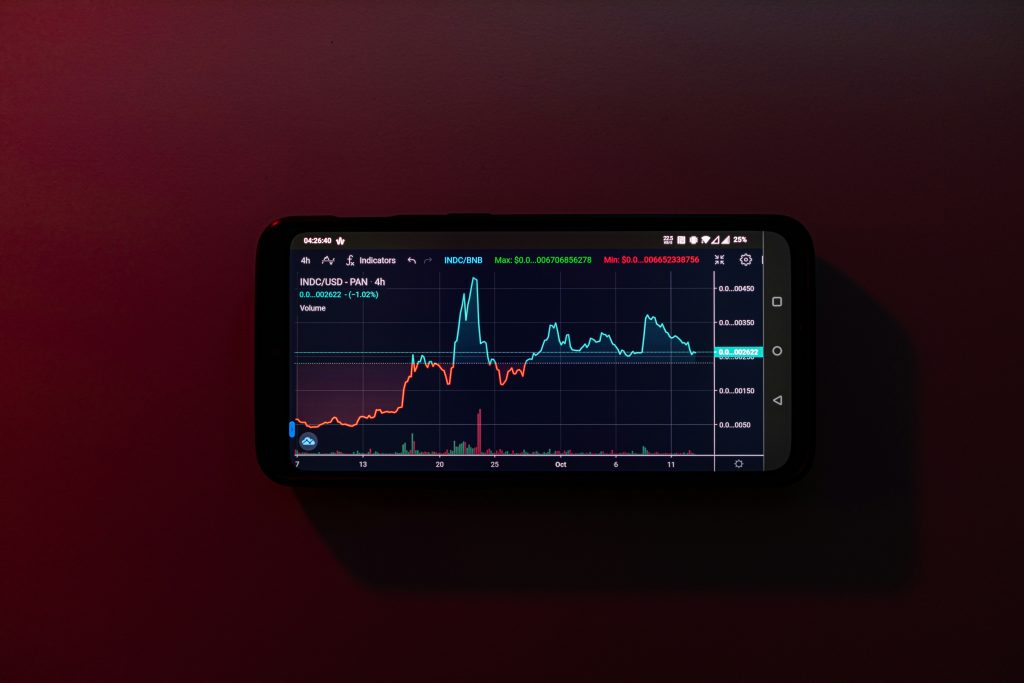
Introduction To Blockchain Technology
Blockchain technology, initially conceptualized by an anonymous person or group known as Satoshi Nakamoto in 2008, forms the bedrock of cryptocurrencies like Bitcoin. At its core, a blockchain is a decentralized digital ledger that records transactions across many computers in such a way that the registered transactions cannot be altered retroactively. This ensures transparency and security without the need for intermediaries.
The technology operates on principles of cryptography, decentralization, and consensus algorithms. Each transaction is grouped into a block and added to a chain in chronological order after being verified by network participants known as nodes. These nodes use complex algorithms to achieve consensus on the validity of transactions. Once validated, a transaction becomes immutable, making fraud and data tampering nearly impossible.
Beyond its initial application in digital currencies, blockchain’s potential extends into various traditional industries by offering solutions for issues related to trust, transparency, and inefficiency. Industries from finance to supply chain management are exploring blockchain’s ability to streamline processes, reduce costs, and enhance security. This transformative technology promises not only to improve existing systems but also to create entirely new business models that were previously unimaginable.
As such, understanding blockchain’s foundational elements is crucial for grasping its disruptive impact across diverse sectors.
The Impact Of Blockchain On Financial Services
The impact of blockchain technology on financial services is profound and multifaceted, fundamentally altering how transactions are conducted, recorded, and verified. At its core, blockchain provides a decentralized ledger system that enhances transparency and security. This technology eliminates the need for intermediaries such as banks or brokers by enabling peer-to-peer transactions that are both secure and verifiable. Consequently, transaction costs are significantly reduced, making financial services more accessible to a broader audience.
One of the most transformative applications of blockchain in finance is in the realm of cross-border payments. Traditional methods often involve multiple intermediaries and can take several days to process. Blockchain streamlines this process by enabling near-instantaneous transfers with minimal fees. Additionally, smart contracts—self-executing contracts with the terms directly written into code—are automating various aspects of financial agreements and reducing the risk of fraud.
Blockchain is also fostering greater inclusivity within the financial sector. By providing secure digital identities and immutable transaction records, it offers unbanked populations access to essential financial services for the first time. As blockchain continues to evolve, its integration into financial systems promises not only increased efficiency but also a democratization of access to economic resources globally.
Transforming Supply Chain Management With Blockchain
Blockchain technology is revolutionizing supply chain management by offering unprecedented transparency, security, and efficiency. Traditional supply chains are often plagued by issues such as fraud, inefficiencies, and lack of traceability. Blockchain addresses these challenges by providing a decentralized ledger that records every transaction in a secure, immutable manner. This ensures that all parties involved in the supply chain—from manufacturers to retailers—have access to a single source of truth.
One of the most significant advantages of blockchain in supply chain management is its ability to enhance traceability. Products can be tracked from their origin to the final consumer, ensuring authenticity and reducing the risk of counterfeit goods. This is particularly crucial for industries like pharmaceuticals and food, where product integrity is paramount.
Moreover, blockchain streamlines operations by automating processes through smart contracts. These self-executing contracts reduce the need for intermediaries and manual paperwork, thereby cutting costs and expediting transactions. For example, payments can be automatically released once goods reach their destination and meet predefined conditions.
In essence, blockchain transforms supply chain management by fostering greater trust among stakeholders while enhancing operational efficiency. As more industries adopt this technology, we can expect even more innovative applications that will further disrupt traditional practices.

Blockchain’s Role In Healthcare Innovation
Blockchain technology is revolutionizing the healthcare sector by addressing some of its most pressing challenges, such as data security, interoperability, and patient-centric care. Traditional healthcare systems often struggle with siloed data, leaving patients and providers grappling with fragmented information. Blockchain offers a decentralized and immutable ledger that ensures data integrity and seamless sharing across various stakeholders.
One significant innovation is in the realm of electronic health records (EHRs). Blockchain enables secure, permissioned access to patient records, ensuring that only authorized personnel can view or modify sensitive information. This not only enhances privacy but also reduces the risk of data breaches—a persistent concern in healthcare.
Furthermore, blockchain facilitates improved drug traceability and supply chain management. Counterfeit medications pose a substantial risk to patient safety; blockchain’s transparent ledger ensures every transaction from manufacturing to dispensing is verifiable, thereby enhancing trust in pharmaceutical products.
Smart contracts are another promising application. These self-executing contracts can automate processes like insurance claims and billing, drastically reducing administrative overheads and minimizing errors.
By fostering a more secure, efficient, and transparent ecosystem, blockchain is setting new standards for how healthcare services are delivered and managed. Its transformative potential promises to make healthcare not only more reliable but also more accessible for everyone involved.
Revolutionizing Real Estate Transactions Through Blockchain
Blockchain technology is making waves in the real estate industry, fundamentally altering how transactions are conducted. Traditionally, real estate transactions involve numerous intermediaries, including brokers, lawyers, and banks, which can complicate and prolong the process. Blockchain disrupts this model by introducing a decentralized ledger system that ensures transparency, security, and efficiency.
Smart contracts are at the heart of this transformation. These self-executing contracts with terms directly written into code can automate various transaction steps such as property transfers and payments. Once conditions are met, actions are executed automatically without the need for third-party intervention. This not only reduces paperwork but also mitigates risks associated with human error and fraud.
Moreover, blockchain enables the tokenization of real estate assets. Properties can be divided into smaller units or tokens that investors can buy or sell on digital platforms. This fractional ownership model lowers barriers to entry for smaller investors who traditionally couldn’t afford entire properties.
The immutable nature of blockchain records ensures a transparent history of property ownership and transactions. This increased transparency builds trust among buyers and sellers while reducing the potential for disputes.
In summary, blockchain is revolutionizing real estate by streamlining processes, enhancing security, fostering transparency, and democratizing investment opportunities.
Enhancing Cybersecurity Measures With Blockchain Solutions
Blockchain technology is revolutionizing cybersecurity by offering a decentralized and immutable method for securing data. Traditional security measures often rely on centralized systems that can become single points of failure, making them vulnerable to hacking, fraud, and data breaches. Blockchain disrupts this paradigm by distributing data across a network of nodes, ensuring that no single entity controls the entire system.
One of the key strengths of blockchain in enhancing cybersecurity lies in its use of cryptographic algorithms to secure transactions and information. Each piece of data added to a blockchain is encrypted and linked to the previous entry through a cryptographic hash, creating an unalterable chain. This makes it exceedingly difficult for malicious actors to tamper with or alter information without detection.
Moreover, blockchain’s decentralized nature eliminates intermediaries and reduces the risk associated with insider threats or centralized server attacks. In industries like finance, healthcare, and supply chain management, where sensitive information is frequently exchanged, blockchain can provide an additional layer of security by ensuring data integrity and authenticity.
Furthermore, smart contracts—self-executing contracts with the terms directly written into code—can automate security protocols and enforce compliance without human intervention. This minimizes human error and enhances overall system reliability.
In sum, blockchain’s robust architecture offers transformative potential for fortifying cybersecurity across various sectors.
The Future Of Blockchain Across Various Industries
The future of blockchain across various industries promises a landscape replete with innovation, efficiency, and transparency. In finance, blockchain is poised to revolutionize the way transactions are conducted, offering unparalleled security and reducing the need for intermediaries. This shift could lead to lower costs and faster transaction times, ultimately benefiting consumers and businesses alike.
Healthcare stands to gain significantly from blockchain technology as well. By enabling secure and immutable patient records, it can ensure data integrity while enhancing privacy protections. This could streamline administrative processes and facilitate better patient outcomes through improved data accessibility.
Supply chain management is another area ripe for transformation. Blockchain can provide end-to-end visibility and traceability, ensuring that products are sourced ethically and sustainably. This transparency can foster trust between consumers and brands while also mitigating risks such as fraud or counterfeiting.
In real estate, blockchain has the potential to simplify property transactions by automating contracts through smart contracts. This could reduce paperwork, cut down on transaction times, and minimize the risk of errors.
As these examples illustrate, the future of blockchain technology holds immense promise across various sectors. Its ability to offer secure, transparent solutions is set to redefine traditional industry paradigms in profound ways.




